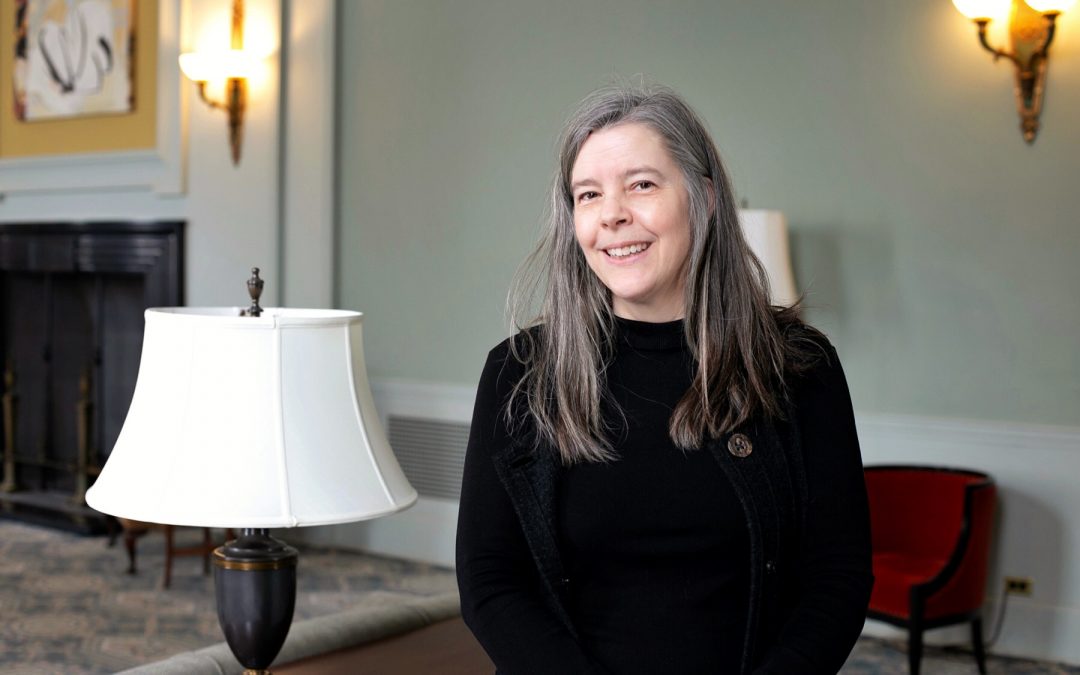The career landscape for doctoral graduates has changed dramatically, with current data showing less than half of them pursuing tenure-track faculty positions. Many Ph.D. recipients are opting for work in industry, government, nonprofits, and academic administration.
Kirsten Elling, Rackham’s new embedded career counselor from the University Career Center (UCC), helps Ph.D. students translate their academic experiences to these other roles. She provides career coaching, advising, and programming to doctoral students in order to help them navigate challenges and build a successful career. We spoke with Elling about the concerns students bring to her, as well as the resources she and UCC offer to help.
What advantages do you see being embedded here at Rackham as you help students explore their career options?
Kirsten Elling: Through this position, Ph.D. students have easy access to the expertise and resources available through the University Career Center. It represents a commitment on the part of Rackham and the University of Michigan to support Ph.D. students in exploring broader career opportunities.
Being at Rackham, I can provide students with an “objective listening ear” to understand their interests and help them consider a diverse array of career opportunities. The position allows for easy collaboration with the Rackham Professional and Academic Development staff, as well as with other faculty and staff engaged in graduate student support and development. It also grants us the ability to easily share aggregated themes and issues from one-on-one work with both UCC and Rackham leadership.
What are some of the most common questions or concerns you hear from graduate students?
KE: Graduate students are starting to consider many options, but they know more about the academy and wish to know more about their options beyond it. On a similar note, they’re looking for how to make themselves marketable to industry jobs. They also experience a lot of uncertainty around where to start their job search if they’re interested in jobs outside of academe, as well as how to incorporate career planning with other life plans.
What are some of the career challenges you see as unique to graduate students?
KE: The biggest challenge I see is the shrinking market of tenure-track jobs, which is what doctoral study traditionally grooms students for. It can also be difficult for students to identify internships and other types of experiences where they apply and hone their skills, though this is changing.
Another challenge for students is knowing where to look for information about jobs in industry or just where to start their job search. Graduate mentors and advisors may not have the information Ph.D. students need to search for a job outside of academe, or to begin to even explore that possibility.
Finally, graduate students are in a different stage of life than most undergraduates, so their personal priorities may begin to impact their career planning and choices in new, unanticipated ways.
What kind of resources do you and the University Career Center offer for graduate students concerned about their career?
KE: We offer one-on-one coaching and counseling for support, information, and guidance about everything from the career exploration phase to resume review, networking, mock interviews, and the negotiation of job offers. We cover the full arc of the exploration and job search process. One-on-one coaching also provides structure and accountability to that process, so it doesn’t languish at the bottom of their to-do list, as sometimes happens to personal or professional items.
We also help normalize the job search experience, provide assistance in making connections to the world of work, and help students articulate the transferability of their experiences from academia to other sectors.
We provide programs on topics such as converting CVs to resumes, interviewing beyond the professoriate, and our upcoming Ph.D. Connections Conference—a UCC/Rackham collaboration that features panelists from a variety of industries, as well as skill building workshops—on April 3. Student organizations and faculty can request specific programs, as well.
Other things we can help with are coordinating immersions, which are opportunities for a student to spend a day at a specific company to get a sense of roles within that industry, assisting with LinkedIn and other networking tools, and providing assessments like Myers-Briggs and Clifton Strengths. We also provide resources on things like job and internship postings through Handshake, where students can also make one-on-one appointments to meet with UCC counselors.
Finally, we work with students to map out their goals and the steps to attain them, helping them create a clear sense of positive next steps they can take.
What drew you to this work?
KE: This role brings together key threads from my years in higher education. I have a Ph.D. in clinical psychology and started out in the mental health counseling side of student affairs. I had the opportunity to integrate my interest in career development as well as DEI work early in my career, and really enjoy working with students in a holistic way. I consider it a privilege to talk in depth with students as they are sorting out issues of identity and career development, making important decisions that will impact the trajectory of their lives. Each person is unique, and I really enjoy helping students articulate their strengths, goals, and values as they work to envision their ideal life, and then take practical steps to accomplish their goals.
I enjoy collaboration and synergy, so being part of both the UCC and Rackham teams is really exciting. Both UCC and Rackham are committed to supporting graduate student career development, and this role embodies that partnership, which is so full of potential.
Students who wish to make an appointment with Elling can do so through the Career Center website.

